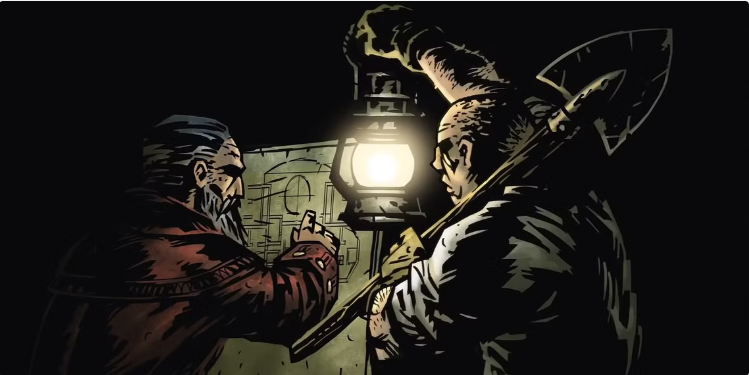1. Embrace Death
- Death is a core mechanic. Heroes will die, and new ones will arrive via the Stage Coach weekly.
- “From Beyond” is a rare Town Event that may resurrect a hero. Use it wisely.
2. There’s No Game Over
- Even if you lose all your heroes or resources, you can rebuild. Only Stygian mode imposes strict death and time limits.
3. Discard Weak Heroes
- Dismiss heroes with high stress or negative quirks to save gold. The Stage Coach ensures a constant supply of replacements.
4. Save Gold and Heirlooms
- Early on, don’t spend on afflictions or quirks. Prioritize upgrading weapons over armor, and save heirlooms until you understand which buildings need upgrading.
5. Upgrade the Stage Coach First
- Increase the number of heroes available each week. Then prioritize the Guild and Blacksmith to reduce upgrade costs.
6. Prioritize Damage Upgrades
- Focus on weapon upgrades and primary skills in the Guild. High damage output shortens battles and reduces stress.
7. Learn Hero Roles
- Understand your heroes’ primary roles:
- Tanks: Absorb damage (e.g., Crusader).
- Damage Dealers: Deliver high damage but are fragile (e.g., Highwayman).
- Healers: Sustain the team (e.g., Vestal, Occultist).
- Many heroes can fill hybrid roles. Experiment to find the best fit.
8. Optimize Party Composition
- Build teams that synergize well and counter dungeon-specific threats. For example, avoid using the Plague Doctor’s Blight skills in the Weald due to enemy resistances.
9. Check Hero Ranks
- Each hero functions best in specific positions. For example:
- Jester works well in ranks 3–4.
- Grave Robber can Lunge from the back but must end near the front.
- Understand how abilities move your heroes.
10. Buy Provisions Wisely
- Tailor your provisions to the dungeon:
- Weald: Antivenom for Blight.
- Warrens: Bandages for Bleed.
- Cove: Extra shovels for obstacles.
- Keep Firewood for camp setups in medium and long runs.
11. Manage Torch Levels
- High light levels (>75%) reduce surprises and improve scouting. Lower levels increase loot but make runs riskier.
12. Monitor Stress Levels
- Stress kills as surely as damage. Use skills like Jester’s Inspiring Tune or Crusader’s Inspiring Cry to manage stress.
13. Retreat Strategically
- If the odds are against you, retreat to save your heroes and loot. Be mindful of the stress penalty for doing so.
14. Target Enemy Backlines
- Focus on stress dealers and high-damage enemies in the back ranks (e.g., Cultist Acolytes, Madmen) before addressing bulky tanks in the front.
15. Use Healer Abilities Offensively
- Even healers can attack or debuff. If healing won’t prevent a Death’s Door situation, consider contributing to offense.
16. Adapt to Dungeon Threats
- Customize your party for each dungeon. Plague Doctor thrives in Blight-susceptible areas but struggles against resistant enemies.
17. Know When to Upgrade the Hamlet
- Upgrade facilities like the Abbey and Sanitarium after the Stage Coach, Guild, and Blacksmith. Prioritize reducing upgrade costs for long-term savings.
These tips should help ease the journey through Darkest Dungeon. Remember, perseverance is key to mastering its brutal challenges!

